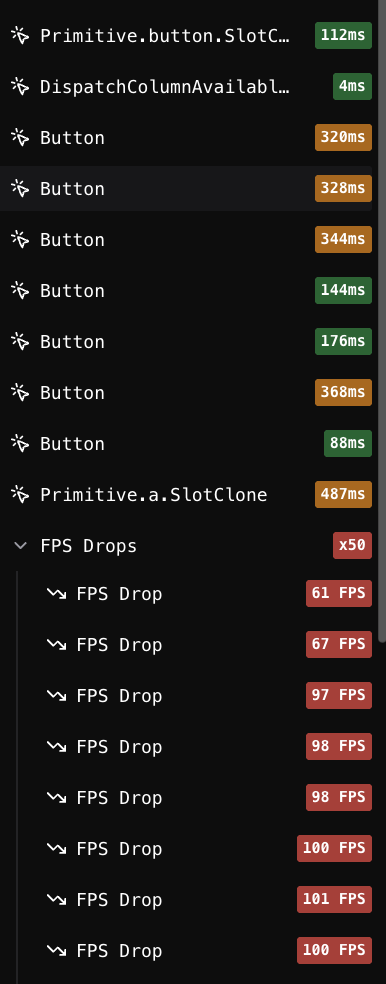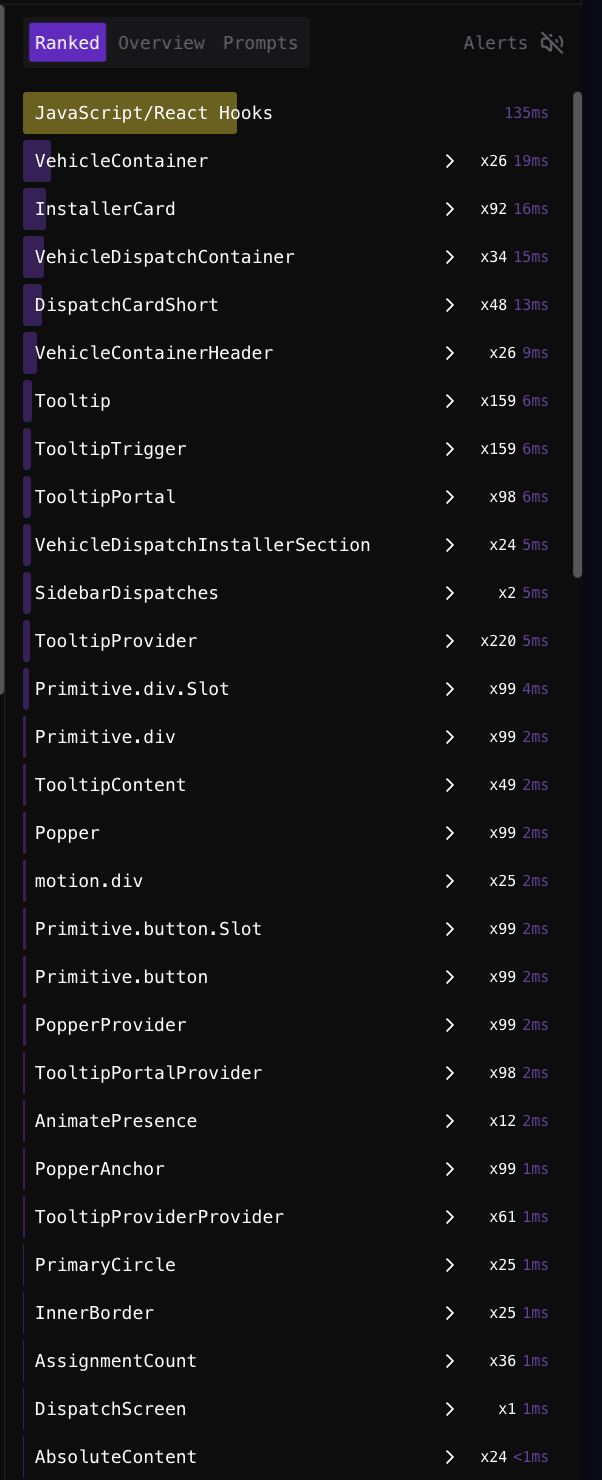Performance Footguns? Slow on prop changes.
I'm noticing FPS dropping as I migrate from useQuery to useLiveQuery.
I'm going from tanstack-query
It seems part of the reason stems from the fact that the data is all there, so when every component on our Dispatch screen is on-screen and then the date prop changes, every single one of them has a change in the
I really like how the jotai library has a performance page where it shows the Do's and Don't's for usage when it comes to performance footguns, so I thought we could start a thread for surfacing what those are, and can eventually add what we learn to docs?
I'm going from tanstack-query
useQuery() with deeply nested graphql queries + prop drilling, tanstack-db + electric sql keeping all data synced and local, using useLiveQuery() to join and select exactly the data needed.It seems part of the reason stems from the fact that the data is all there, so when every component on our Dispatch screen is on-screen and then the date prop changes, every single one of them has a change in the
where clause at the same instant. A few of the collections have tens of thousands of records, and are joined with 5 others for a given component.I really like how the jotai library has a performance page where it shows the Do's and Don't's for usage when it comes to performance footguns, so I thought we could start a thread for surfacing what those are, and can eventually add what we learn to docs?


